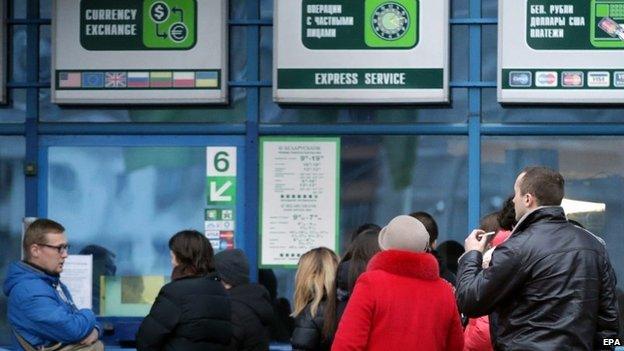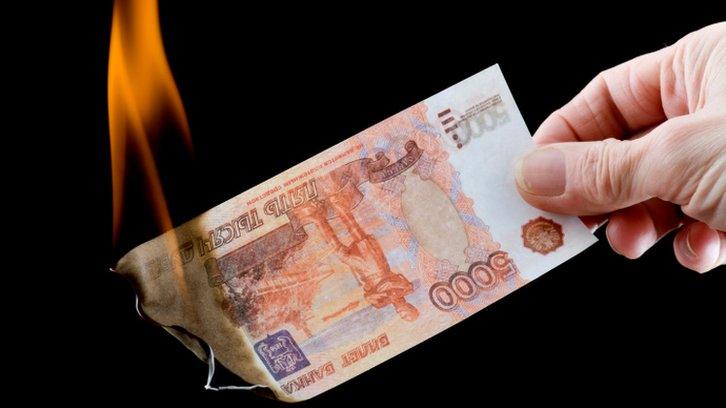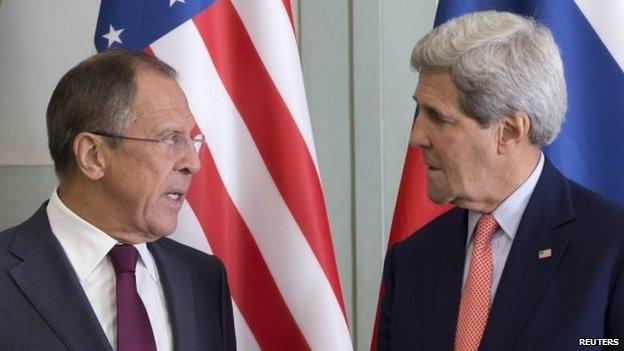Belarus imposes duty on foreign currency purchases
- Published

Belarus's central bank has introduced a 30% duty on all purchases of foreign currency to try to protect its rouble.
Belarusian exporters will also be required to convert more of their overseas earnings into local currency.
The country is feeling the effects of the fall in the value of the Russian rouble, which reached new lows against the dollar this week.
The Belarusian economy is closely linked to Russia, which is its biggest trading partner.
The central bank said it had "adopted a number of measures aimed at preventing the development of negative trends on the currency and financial markets of Belarus."
There were reports of some foreign exchange offices running out of money and queues forming at banks as people tried to withdraw money.
Amid fears of a devaluation of the Belarus rouble, President Alexander Lukashenko insisted the country could weather the storm and instructed his people not to convert their roubles: "Don't change it for foreign currency, don't trade it, because it will have consequences," he warned.
There have been rumours in the last few days that Sberbank in Russia will impose similar restrictions on its customers and that it could block their Visa and MasterCards. The rumours have been denied by the bank and the card companies.
Earlier this week shares in Sberbank, which is Russia's largest bank, fell sharply after the rise in the country's interest rates failed to halt the downward slide of the Russian rouble.
On Friday, Russia's lower house of parliament, the Duma, passed a draft law which, if enacted, would give the banking sector an injection of capital of up to 1 trillion roubles.
- Published19 December 2014

- Published18 December 2014

- Published19 December 2014
